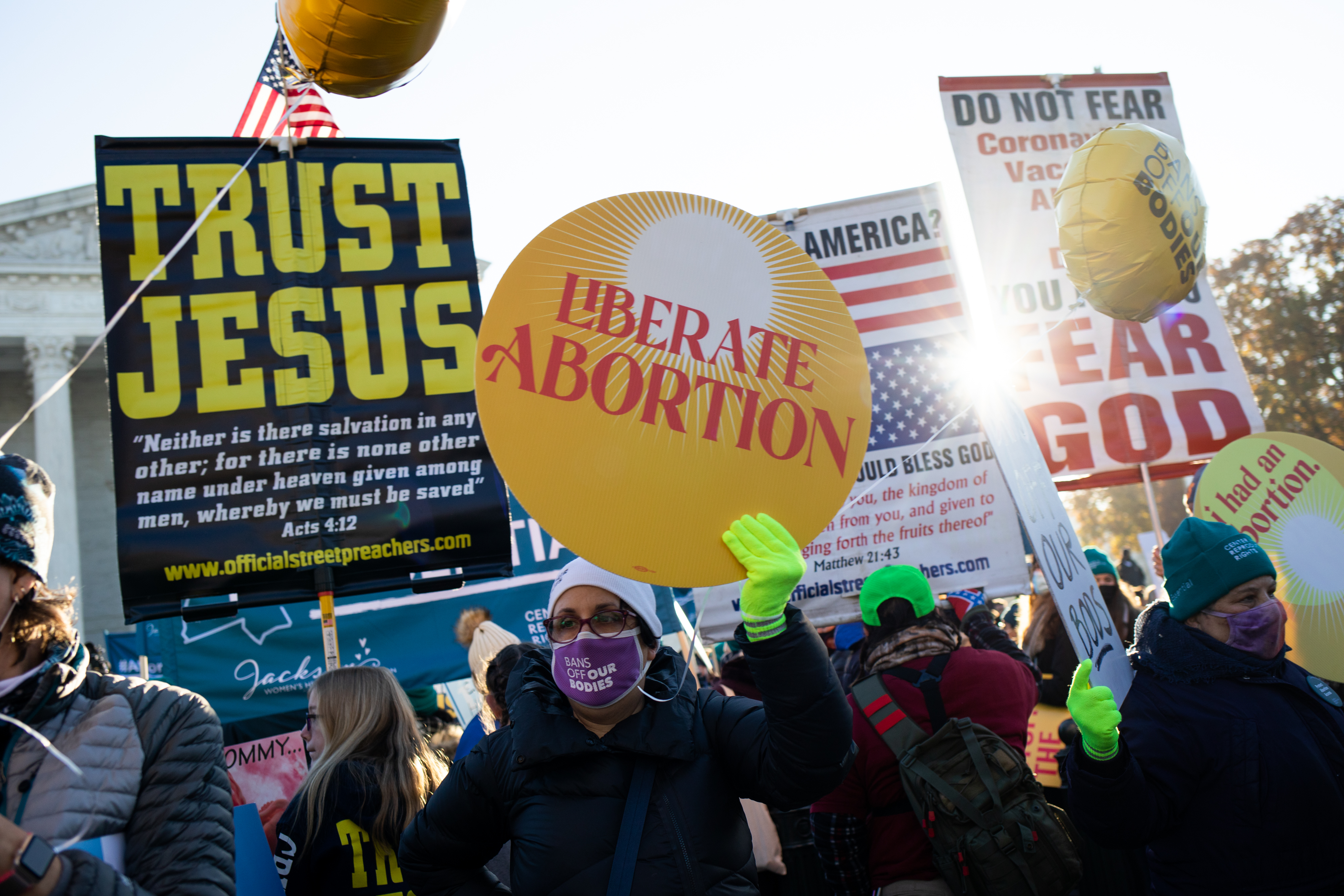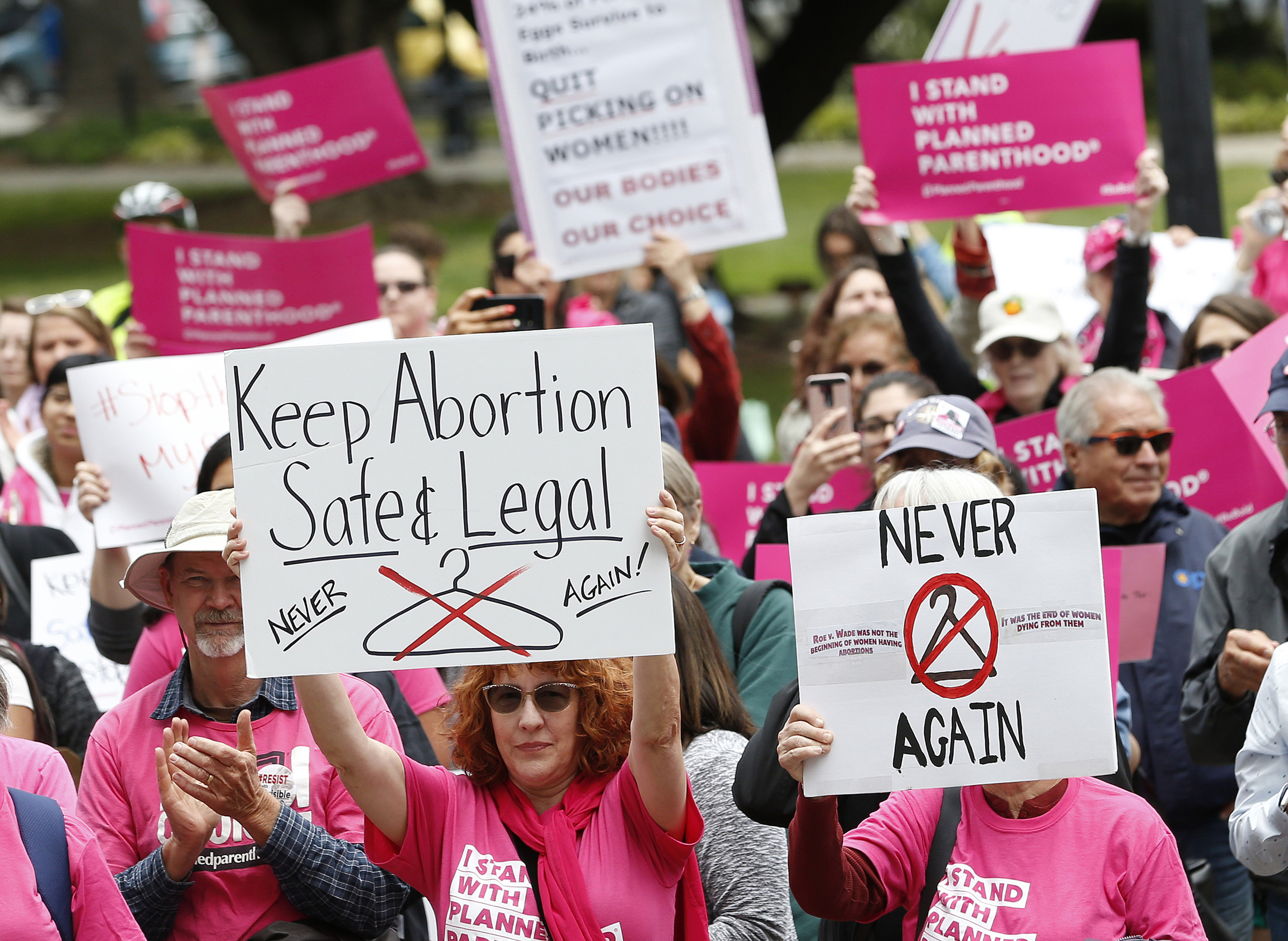The U.S. Supreme Court is allowing abortion providers to challenge the Texas law that bans most abortions, while the law itself will remain in place.
Senate Bill 8, or the Heartbeat Act, took effect on Sept. 1. It bans abortion after doctors can detect a fetal heartbeat, which is about six weeks into a pregnancy.
However, because past Supreme Court rulings have said states cannot ban abortion before the age of fetal viability, around 24 weeks, Texas officials could not enforce the ban themselves. Instead, the law delegates enforcement to private citizens who can sue any doctor performing an abortion or anyone who aids in the procedure.
Abortion Fight
Get top local stories in DFW delivered to you every morning. Sign up for NBC DFW's News Headlines newsletter.
“The Supreme Court did two things this morning. It basically ended the DOJ’s lawsuit about SB8,” explained Dallas-based attorney David Coale.
“Then it turned to the providers’ lawsuit, Whole Woman’s Health, and went through party, by party, by party. It said this part can’t proceed, this part can’t proceed, but there’s this one part that can go forward.”
The vote in the case, Whole Woman’s Health v. Jackson, was 8 to 1. The ruling was not a complete win for either abortion providers or groups that have advocated against abortion, Coale said.
“At the end of the day, if I’m a proponent of SB8, I’d feel pretty good about where I am because there will continue to be some federal litigation in the provider case, but it’s going to be on the fairly discreet aspect of the statute,” he said.
Kimberlyn Schwartz with Texas Right to Life, the group that helped draft Senate Bill 8, called the ruling a “mixed bag.”
“Every day that the Texas Heartbeat Act is in effect, we estimate that it saves about 75 to 100 babies per day from abortion,” Schwartz said Friday. “We are a bit alarmed and discouraged by the fact that this lawsuit is going to continue and the Supreme Court saw validity in it, but again we’re very encouraged that the Biden administration’s lawsuit dismissed and this law is going to remain in effect.”
Marva Sadler, senior director of Clinical Services for Whole Woman’s Health, said the decision was a “let down.”
Whole Woman’s Health operates four clinics in Texas, including one in Fort Worth and one in McKinney.
“We’re 101 days away into turning women away and more importantly, what we want more than anything is to put a stop to that and unfortunately, we just did not get that today,” Sadler said. “It’s been excruciating. It’s been painful. It’s been turning woman after woman away. It’s a lot of ups and downs and hoping we’d get some sort of relief, really not knowing where to go and where this court situation was headed for a little while there."
The high court ruling comes one day after a Texas judge said the enforcement mechanism behind Senate Bill 8 is unconstitutional.




